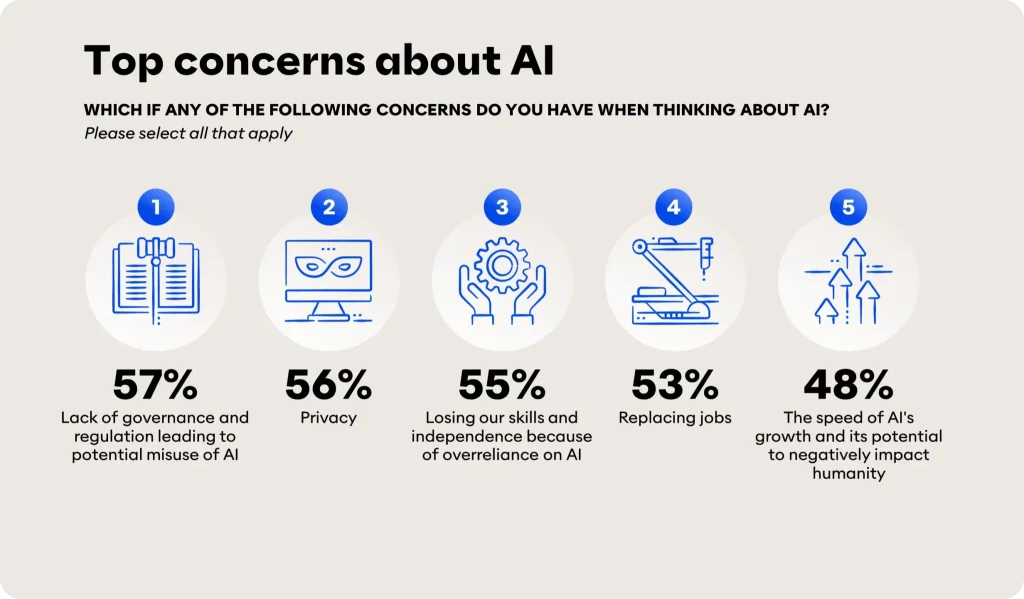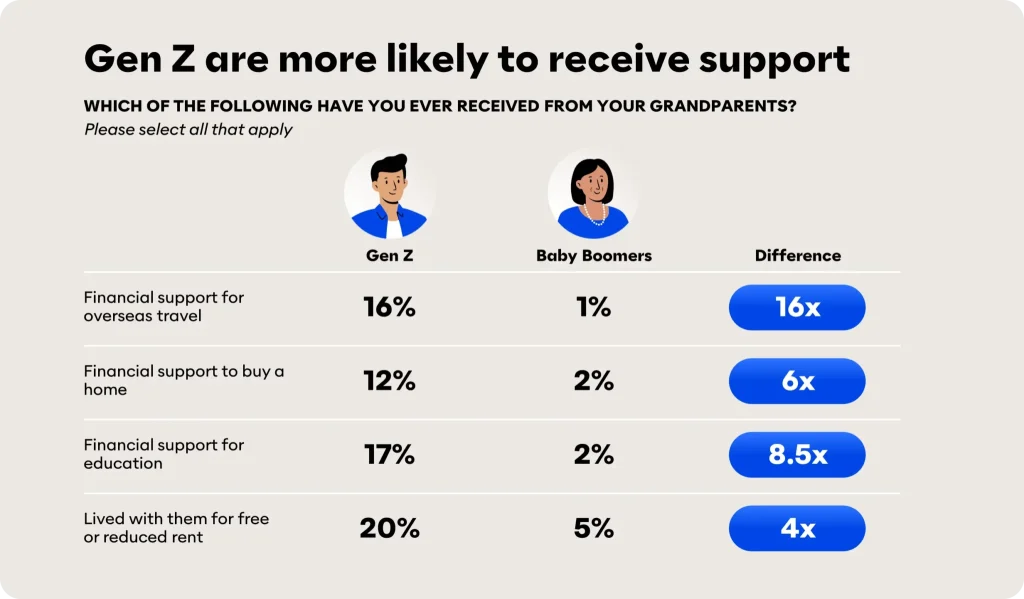By: Mark McCrindle
While it may not feel like it sometimes, the future is not an inevitable destination, but something that is shaped by trends – and these can be influenced if understood and responded to.
At McCrindle we’re fascinated by the trends impacting the world around us. These Trends of 2024 tell a story of shifting perceptions, technological innovation, generational changes and ultimately the unfolding future. Observing these trends helps to make informed predictions about the trends set to shape the year ahead.
Here is a brief summary of the trends from our Trends of 2024 virtual event. Download the full infographic here.
1. Real environment
Just like the term ‘real economy’, (which recognises that shares and stock options are bought and sold in a world detached from people’s everyday economic realities), the real environment denotes environmental commitments and practices that move beyond buzzwords and abstractions to engage people in tangible ways, on issues that affect their day to day.
When asked about the importance of various issues, 76% of people said that health of waterways and oceans is extremely or very important, followed by extinction or endangerment of animals (72%) and air pollution (72%). This compares to carbon dioxide emissions (60%), coastal erosion (60%) and the broad label of climate change (65%). Leaders need to ensure the real economy is a focal point if they want to engage today’s consumers. There’s an opportunity to take environmental conversations beyond buzzwords to embed sustainable practices that make a real difference in people’s lives and neighborhoods.
2. Community redefined
In the wake of the pandemic, loneliness is prevalent and there is a growing group of people that feel a sense of isolation. Our research has found that 59% of people often or sometimes feel lonely.
It’s the youngest generation, Gen Z who are most likely to feel lonely, with 71% saying they often or sometimes feel lonely. This is followed by Gen Y (69%), Gen X (58%) and Baby Boomers (40%). As more of our lives are lived online, people are finding new ways to meet the timeless need for human connection. Micro-communities are emerging digitally and physically as people seek out connection and community.
3. Small business nation
With trust in large corporates at a lower ebb and a rising generation with entrepreneurial ambition, the small business economy is an important one, challenged by regulatory burden and globalisation. An incredible 88% of Australian businesses employ four people or fewer. The entrepreneurial spirit is strong among the emerging generations, with 86% of Gen Z wanting to work in something they have started themselves. When asked why, the main reasons Gen Z want a side hustle is to combat the cost of living or financial goals, or a temporary income stream.
4. The growth reckoning
This trends describes a collective re-evaluation of societal values and economic priorities, addressing the benefits and challenges of population growth. As demographers we track population change as well as social change. Following supressed growth through COVID, Australia’s population growth bounced back in a big way in 2023. There are many benefits of population growth in the forms of economic growth, lowering the age profile, increase in consumer demand, innovation and increase in highly skilled workers. However, this growth does pose challenges as well, and in 2024 we expect to see a greater discussion of population growth’s impact on housing affordability, rental shortages and infrastructure bottlenecks.
5. Superiofficey
As businesses continue to navigate the complexities of hybrid, remote and traditional office routines, the value of the workplace comes into play. Employers and employees are becoming increasingly aware of the benefits of hybrid work as well as the hidden consequences of working remotely as opposed to in the workplace. One of these is reflected in “Superiofficey”; the perceived superiority and reported productivity of physical presence in the office. Our study found that 59% of workers have a sneaking suspicion that those working in the workplace get better opportunities than those working from home. In addition to that, hybrid workers are experiencing video-conference FOMO; the fear of missing out on conversations that take place during or after video conference meetings. This trend emphasises the value of the workplace amid the complexities of hybrid work and remote setups.
6. AI acceleration
The integration of AI is becoming an indispensable part of life. Although it is creating opportunities, there are concerns about lack of regulation, privacy and human displacement. While there are a lot of business efficiencies to be found, many have concerns. More than half (57%) have concerns about a lack of governance and regulation, 56% about privacy, and 55% about losing skills and independence because of an over-reliance on AI.
Within the trend of AI acceleration, leaders will do well to be mindful of AI and their teams attitudes towards it. This also includes looking for opportunities to upskill your teams and to utilise it for productivity and efficiencies. As AI increases, it’s also helpful to remember that uniquely human skills will become increasingly important.

7. Grandparent economy
While the rising cost of living poses a challenge for many people, the Baby Boomers (although not exempt) have in many ways benefited from early investments and the current economic climate. This is demonstrated in the fact that the Baby Boomers comprise a fifth of Australia’s population, yet own half of the nation’s private wealth – and it seems they are using it to help out younger generations. When it comes to receiving financial help from grandparents, Gen Z are 16x more likely to have received financial support for overseas travel from their grandparents than the Baby Boomers did when they were younger.
Gen Z are also 6x more likely to have received financial support from their grandparents to buy a home than the Baby Boomers did. Today, one in five (20%) Gen Z say they have lived with their grandparents for free or for reduced rent, compared to just 5% of Baby Boomers.

8. Alpha impact
Generation Alpha describes those born between 2010 and 2024. Which means the oldest Gen Alphas will be turning 14 this year. By 2029, Generation Alpha’s economic footprint will reach more than US$5.46 trillion. Organisations today should consider how they engage with this generation, as they will be the largest generation ever, the most formally educated and technologically supplied.
Generation Alpha are shifting from household influencers to technological trendsetters, wielding substantial economic power, as they gain increasing autonomy and influence. Every brand product or company is just one generation away from irrelevancy, yet such is the demographic size and influence of Generation Alpha that any organisation that fails to engage with them will edge towards extinction.
Trends of 2024 infographic
In this handy infographic, you’ll discover the trends that will shape businesses, teams and communities, and how you can find opportunities in the change.
Article supplied with thanks to McCrindle.
About the Author: McCrindle are a team of researchers and communications specialists who discover insights, and tell the story of Australians – what we do, and who we are.
Feature image: Photo by JOSHUA COLEMAN on Unsplash
